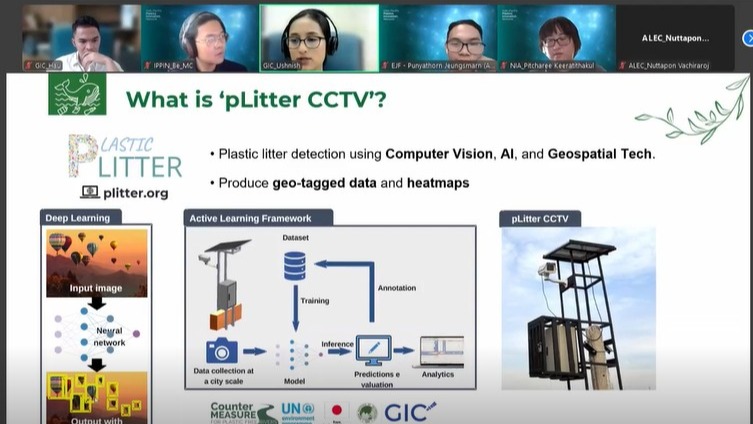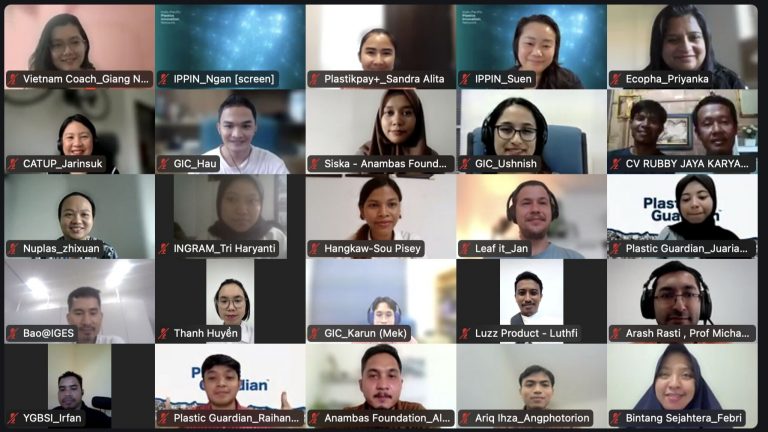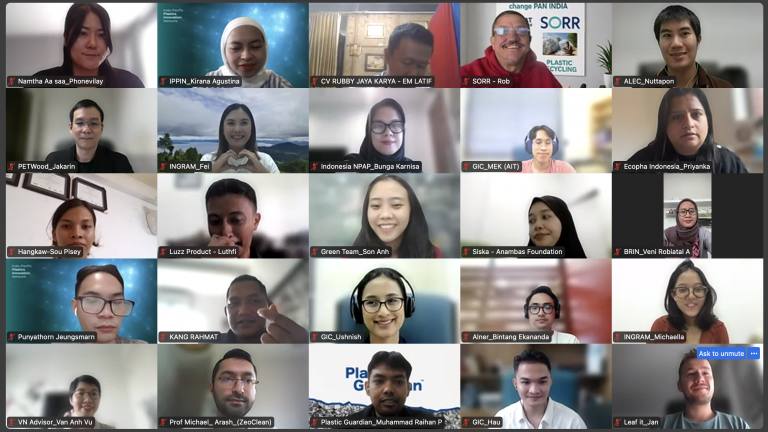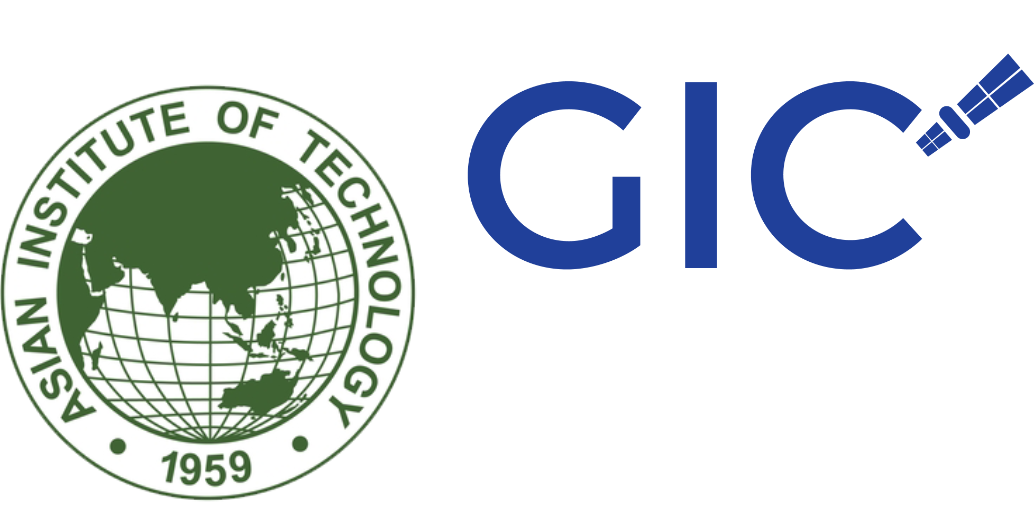
Overview
The Indo-Pacific Plastics Innovation Network (IPPIN) Incubator Program is a free five-week online introductory program for researchers, startups and small to medium enterprises (SMEs) looking to redefine the plastic waste lifecycle. It is designed to help teams understand the potential of their project or idea with customer discovery and market validation of plastic waste solutions, with support from mentors and advisors to improve communication skills, challenge assumptions and take research projects to the next level. The program offers the opportunity to connect with entrepreneurs across the Indo-Pacific region, fostering cross-cultural networking and collaborations.
IPPIN is supported by the Australian Government and implemented by Australia’s national science agency, CSIRO in partnership with governments in Indonesia, Thailand and Vietnam. The kick-off of the program was held on 20 May 2025 via online mode with introduction on cohort teams from different chapters, IPPIN team. Ms. Amelia Fyfield, Director Southeast Asia, CSIRO and Ms. Andrea Sosa Pintos, IPPIN Program Director, CSIRO presented opening remarks and welcomed the participants for the IPPIN Incubator Program.
GIC’s Role
GIC was selected as one of the teams under the Thailand Chapter, among 31 teams from Thailand, Laos, Vietnam, and Indonesia, for our innovative technology solution, pLitter CCTV. The team was led by Ms. Ushnish Tuladhar, alongside Mr. Karun Mooksrisai and Mr. Nguyen Cong Hau, throughout the intensive training program.
Over the five-week program, participants engaged in a series of thematic sessions. In Week 2, the Local Ecosystem Deep Dive provided valuable insights into local waste management landscapes, including regulatory frameworks, existing challenges, and emerging market opportunities. This session helped our team define both physical and thematic boundaries, articulate our north-star vision, and identify key stakeholders as potential enablers or inhibitors.
The following week’s focus on Design Thinking and Validation introduced empathy-driven approaches such as stakeholder interviews, customer journey mapping, and iterative prototype testing. These activities helped ensure our solution is grounded in real-user needs. Our team also had the opportunity to practice interview techniques with other cohort members, simulating stakeholder-presenter scenarios.
Week 4 focused on Business Model Refinement and GEDSI Integration, aiming to strengthen our strategic approach. During this session, we mapped stakeholders across various levels, explored our potential GEDSI (Gender Equality, Disability, and Social Inclusion) contributions, and designed activities to promote the inclusion of marginalized groups in the community-level implementation of our technology.
The program concluded with the Plastic Innovation Spotlight on 17 June 2025, where we presented our technology pLitter CCTV. The presentation highlighted the key problems we aim to address, our business potential, environmental impact, and our GEDSI strategy. The event also provided valuable networking opportunities with potential stakeholders and industry advisors, opening doors for future collaboration




